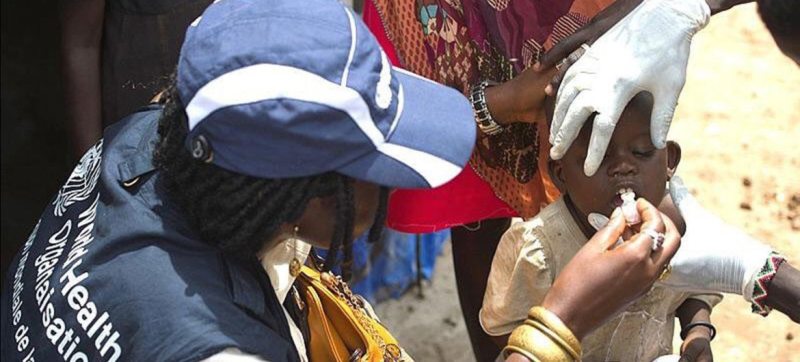- Israel Strikes Tehran with US Support Amid Nuclear Tensions |
- India Sees 9% Drop in Foreign Tourists as Bangladesh Visits Plunge |
- Dhaka Urges Restraint in Pakistan-Afghan War |
- Guterres Urges Action on Safe Migration Pact |
- OpenAI Raises $110B in Amazon-Led Funding |
South Sudan's Cholera Outbreak Reaches Critical Stage

The World Health Organization (WHO) is working with health authorities in South Sudan and partners to scale up cholera prevention efforts, including a vaccination campaign.
On the eve of the fourteenth anniversary of its independence, South Sudan – the world’s youngest country – is experiencing its worst and longest cholera outbreak.
The outbreak – which started in September 2024 and was confirmed a month later – comes amidst a protracted humanitarian crisis exacerbated by rising intercommunal violence, climate shocks such as flooding, and catastrophic hunger.
“Now, more than ever, collective action is needed to reduce tensions, resolve political differences, and make tangible progress in implementing peace,” said Anita Kiki Gbeho, UN Resident and Humanitarian Coordinator in South Sudan.
Since the cholera outbreak was declared in October 2024, UN agencies and partners have documented over 80,000 cholera cases and 1,400 deaths.
This is in addition to regional outbreaks of mpox, hepatitis, and measles, among other communicable diseases.
South Sudanese authorities, civil society, and UN agencies held an inter-ministerial meeting on Monday to discuss what they called an “alarming escalation” in the spread of the outbreak.
“This is not merely a public health crisis, but a multi-sectoral emergency exacerbated by flooding, displacement, and limited access to basic services,” the ministers wrote in a communiqué.
The group resolved to facilitate unimpeded humanitarian access to areas already affected by outbreaks and to other areas at risk. The Government of South Sudan will coordinate these efforts.
Partners will also work to preposition materials, improve water and sanitation infrastructure, and coordinate proactive and reactive vaccination campaigns.
With the peak of the rainy season on the horizon, the next eight weeks are critical for containing and mitigating the outbreak before severe flooding begins.
“Time is of the essence to prevent a further escalation of the outbreak,” the officials wrote.
Floods more than double the frequency of cholera outbreaks by jeopardising access to clean water and impeding humanitarian operations. With rising global temperatures making floods more severe, millions of South Sudanese who were not previously at risk may now face increased vulnerability to cholera.
Cholera is an acute diarrhoeal infection caused by consuming contaminated water or food. Although highly communicable, it is preventable through proper hygiene, regular handwashing, safe food preparation and storage, improved sanitation infrastructure, and vaccination.
Symptoms typically include watery diarrhoea. Most cases are mild to moderate and can be treated effectively with oral rehydration salts (ORS) mixed with clean, boiled water.
However, in severe cases, cholera can be fatal—sometimes within hours—if not treated promptly.
Infected individuals can also transmit the disease through their faeces for up to ten days, even if they show no symptoms.
In South Sudan, the already inadequate water and sanitation infrastructure and overstretched public health system have further deteriorated due to displacement and conflict. This has created ideal conditions for the spread of cholera.
The UN and its partners are working quickly to preposition emergency supplies, especially in previously low-risk areas, but they are hampered by funding shortfalls. Agencies estimate that they will need $1.69 billion – of which only $368 million has been received – to address the many intersecting humanitarian needs in the country.
Nevertheless, the group of ministers insisted that this outbreak must remain a priority for all involved.
“Cholera response and flood preparedness must be treated as urgent national priorities,” they said in the communiqué.

